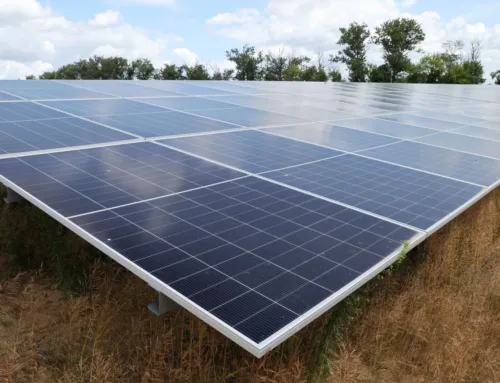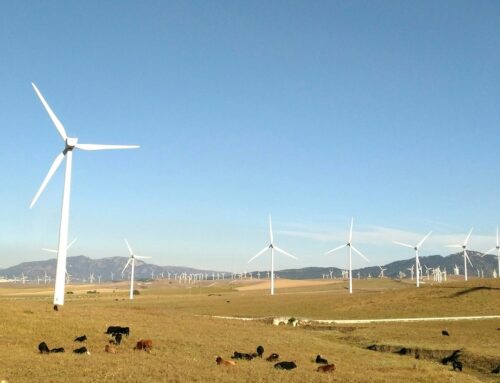Traditional food systems nourish communities and protect the environment: lessons from Sou
September 22, 2025
The global food system contributes to multiple planetary crises – and is vulnerable to them. Climate change, other ecological degradation and socio-economic inequality are all linked to food.
Malnutrition and rising levels of diet-related diseases are also related to this food system, in which transnational food corporations pursue profits at the expense of human health and the environment.
In recent years, various groups including small-scale food producers, social movements, scholars and international agencies have campaigned for a more socially just and environmentally sustainable global food system.
This drives the movement for food sovereignty – the right to healthy and culturally appropriate food produced through ecologically sound and sustainable methods. It includes the right of people to say how they want to set up their own food and agriculture systems.
But moving to the kind of food systems that create food sovereignty will require a shift in the values underpinning current profit-focused food systems. It will need a move towards well-being, regeneration and care.
Values-based food systems are not a new idea. Indigenous food systems like those established by the Māori of Aotearoa/New Zealand or the Quechua people of Peru are underpinned by values of interconnection, reciprocity, collectivism, sacredness and abundance.
In South Africa, these values were also present before colonialism violently disrupted food systems. Colonialism imposed new systems grounded in profit and the needs of European empires.

Brittany Kesselman
However, traditional knowledge holders throughout South Africa have managed to maintain some Indigenous food systems. The traditional food system of Amadiba in Mpondoland, in South Africa’s Eastern Cape province, illustrates both the resilience of values-based food systems and the ongoing struggle to maintain them.
I am a researcher in agroecology and sustainable food systems. I conducted research on traditional food knowledge and practices in Mpondoland with Sinegugu Zukulu, a board member of Sustaining the Wild Coast and co-winner of the Goldman Environmental Prize for Africa in 2024. The Wild Coast is a beautiful stretch of coast in the Eastern Cape, where the Amadiba villages are located (Amadiba is part of Mpondoland, which extends inland from the Wild Coast).
The people of Mpondoland have a long tradition of resisting loss of their autonomy, land and livelihoods. Recently, most of the Amadiba community has resisted titanium mining and offshore oil and gas exploration. These mines would displace households, pollute agricultural and grazing lands and water, disrupt livelihoods, and cut off access to ancestral graves and sacred sites that are essential to Amadiba spiritual and cultural life.
Through the Amadiba Crisis Committee and a sister organisation, Sustaining the Wild Coast, the community has also promoted an alternative vision of development grounded in sustainable agriculture and eco-tourism.
I set out to discover what traditional food and farming knowledge passed down by ancestors was still used by elders in the Amadiba community. I interviewed 40 elders about whether they still utilise traditional practices and whether they have passed them on to their children. The co-author of this article, Sinegugu Zukulu, helped to identify knowledgeable elders for interviews and shared his own vast knowledge.
Read more:
Why South African community’s win against mining company matters
Our research found that Amadiba households continue to gather and produce food in the sustainable ways of their ancestors. Their high level of food security is partly a result of these practices.
Their values-based food system provides lessons that could guide the broader food system towards resilience and sustainability.
How Indigenous food systems benefit the Amadiba community
The villages of Amadiba are home to about 3,000 households. Almost all grow at least some of their own food. The area enjoys good rains, though in recent years changing rainfall has led to some flooding.
Traditional values such as interconnection, sacredness, gratitude, collectivism, sharing and self-sufficiency have underpinned Amadiba foodways for centuries. Our research found that people continue to understand that they are connected to, and dependent upon, the land and water for food and medicines.
As many participants explained: “The land is our life.” Out of this connection to land, water, plants and animals comes respect and an ethic of care, rather than exploitation.
The natural world is also the site of ongoing spiritual connection to ancestors. This begins from birth with the burial of the umbilical cord. It continues through death, when a deceased elder is buried with seeds so that he or she will bring abundance to those left behind.
Read more:
Drought and farming: how women in South Africa are using Indigenous knowledge to cope
Gratitude for abundance is expressed through offerings and celebrations such as harvest festivals. Collective work parties, or ilima, bring neighbours together to assist each other with heavy tasks such as ploughing or weeding. Seeds and food are also shared with those who may not have enough.

Brittany Kesselman
The idea of autonomy lies at the heart of the Amadiba food system and the resistance to mining. Most households no longer subsist entirely on food they grow for themselves. But they find independence in growing enough to provide during shocks such as the COVID-19 pandemic lockdowns or food price increases.
Edible wild foods remain abundant due to customary protection of the environment. Traditional knowledge of the seasonal cycles of these foods also provides greater resilience. As a result, there are very high levels of food security in Amadiba, compared to surrounding areas.
For example, Amadiba households grow many of the traditional and highly nutritious crops grown by their ancestors. These include sorghum, maize, a variety of beans, calabashes, sweet potatoes and taro root (amadumbe).
They also keep livestock, and gather wild foods such as greens (imifino), fruits, game and seafood. The community continues to practise traditional food production, processing and storage skills.
What needs to happen next
As is the case throughout South Africa, traditional foods and food practices are under threat in Amadiba. Key reasons are migration to work in urban areas, and the ability to purchase foods from wages and social grants. Young people lose their connection when they go to boarding schools or universities and become accustomed to processed foods from shops.
However, the Amadiba community has maintained their land-based livelihoods. This demonstrates the power and persistence of values-based food systems.
Read more:
Food trade regimes harm people and the planet: how the G20 can drive improvements
For communities across Africa, embracing the values that underpin traditional food systems could help them shift away from commercialised food systems to just and sustainable ones.
Governments should utilise those values as the basis for food system policies. Imposing unwanted mining and other projects that don’t benefit traditional food growing communities undermines traditional values and threatens communities’ self-sufficiency and resilience.
Sinegugu Zukulu, a board member of Sustaining the Wild Coast and co-winner of the Goldman Environmental Prize for Africa in 2024, co-authored this article.
Search
RECENT PRESS RELEASES
Related Post




